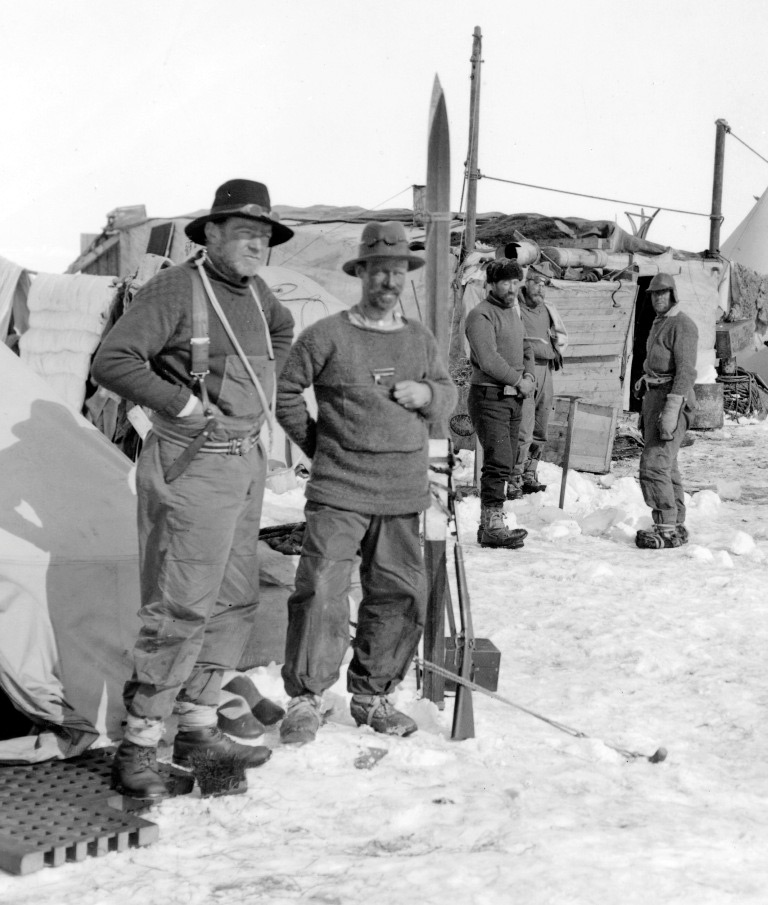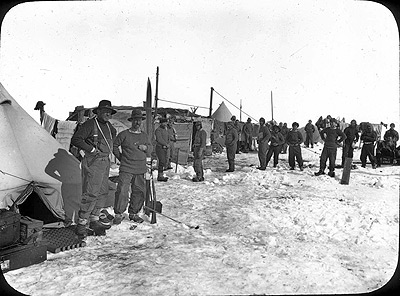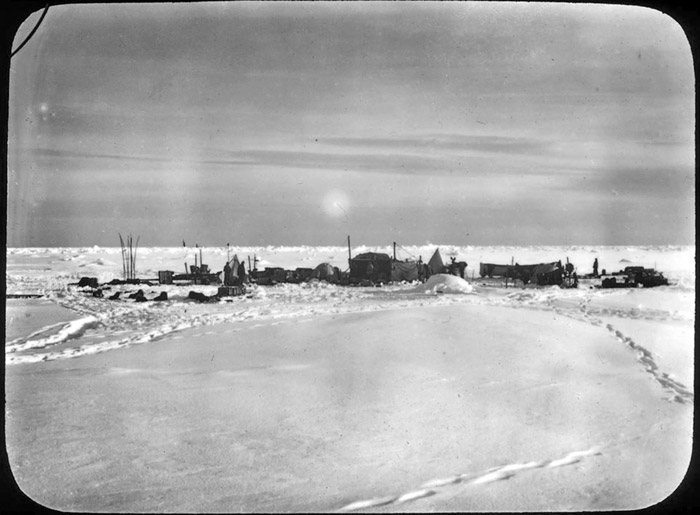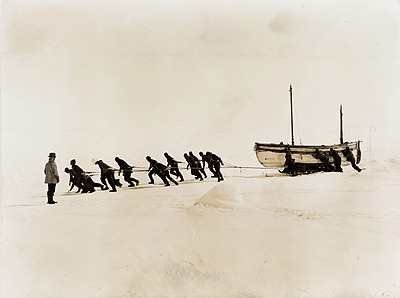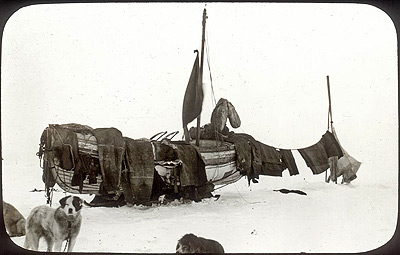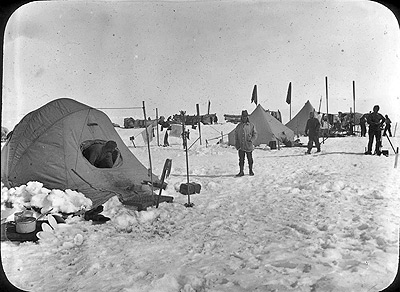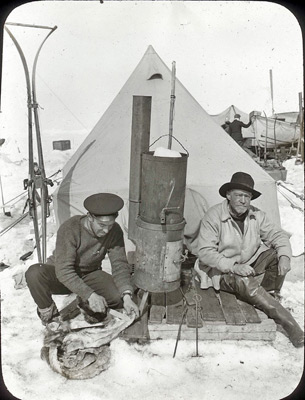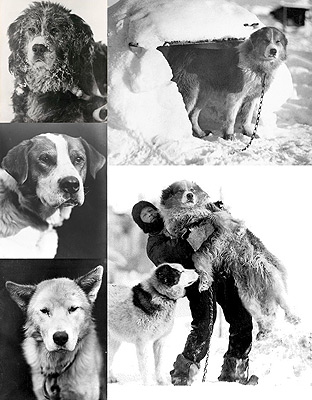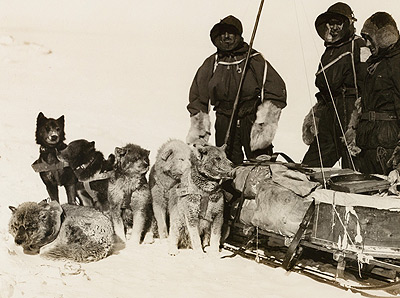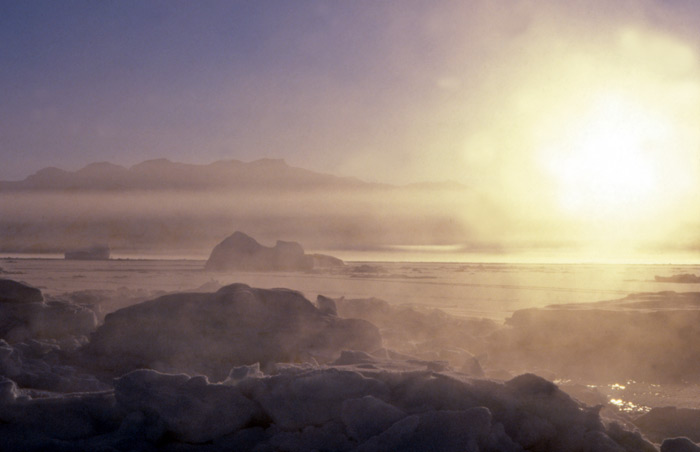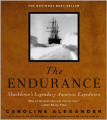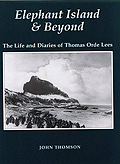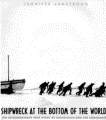Shackleton Tweets
Endurance Expedition
3:
Life on the Ice
The events of the expedition: 1 - South Georgia to Midwinter 1915 | 2 - midwinter to the sinking of the Endurance | 3 - life on the ice | 4 - lifeboats to Elephant Island | 5 - rescue mission to South Georgia | 6 - rescue from Elephant Island
23 Nov 1915
Sausages to cheer all up after the
ship sinking, Orde-Lees rationed 1 and half each, The Boss changed
it to 2, as they were such "bally little ones".
24 Nov 1915
The days pass with little to distinguish
them, we eat well and despite our predicament it feels like
schooldays again, happy and hopeful.
1 Dec 1915
We are north of 68S now every mile
raises our hopes, no-one has ever been within 200 miles of where
we are, oh for a southerly gale!
1 Dec 1915
We have moved camp 50yds, tents,
boats, boxes and all, we were getting water soaked from below,
picture Shackleton (left) Wild.
7 Dec 1915
Practiced with the James Caird for
when we leave the floe, we hauled her easily 1/4ml by sled,
slipway cut, she took to the water "like a bird".
7 Dec 1915
7000lbs from 5 sledge loads of provisions
and 11 men loaded on the James Caird, she has 18" of freeboard.
10 Dec 1915
A blizzard confines all to tents,
dogs' pemmican used to make hoosh leaves everyone feeling
rather bilious, Shackleton struck with rheumatism.
12 Dec 1915
The blizzard has brought us to less
than 1 deg of the Antarctic circle, we were last at this latitude
on Jan 3 this year 400-500 miles to the east.
14 Dec 1915
Cold SSW winds causing at least 12ml
drift each day, all are cheerful and impatient to leave the
ice, time hangs heavily.
16 Dec 1915
We have drifted 120 miles from the
shipwreck now. It is 234 miles to Paulet Island. We exercise
the dogs in the a.m. 7 times round the floe edge, about 9 miles
in all.
18 Dec 1915
A foul NW wind blows us 3.5 miles
south. Outside temperature -5C/22F direct sun raised temp in
tents to 25C/78F! Hussey's banjo helps to raise spirits.
21 Dec 1915
Shackleton, Wild and Hurley climb
a berg 3 miles from camp to find ice conditions are mainly good
for travel to the W much better than when the ship was lost.
21 Dec 1915
An abundance of seals means that
the dogs can be fed without carrying food for them, sledges
with rations intended for the pole journey are ready packed.
21 Dec 1915
Sir Ernest announced that we are
to leave our camp and advance on the 23rd, 6 dog teams will
relay sledges, 18 men will haul the James Caird.
22 Dec 1915
Today is being kept as Christmas
Day, we eat as much as we can of our remaining luxuries that
we cannot take with us, eat, pack, eat, pack.
22 Dec 1915
Anchovies in oil, canned pickles,
jugged hare, tinned onions, baked beans, jams, biscuits, butter
scotch and more, a real schoolboy feast.
23 Dec 1915
Set off at 4.30am snow surface better
from 10pm to 10am we have 24hr light now, hauled boats 1.25
miles, camped at 11am, all in cheery spirits.
23 Dec 1915
Cook has made 800 bannocks so sledging
rations can be kept back. Slept in afternoon, off again at 8.30pm,
open lead halted us at 11.30pm.
25 Dec 1915
Christmas Day 1915 - Weddell Sea
- up at 2am , driving dog teams and manhauling for dear life
across breaking floes.
25 Dec 1915
Lees; Other than a little material
anxiety as to our ultimate progress, I have never been happier
in my life than I am now. "Real" existence.
28 Dec 1915
18 men haul a boat sledge then return
for the other, it is killing work on the soft surface, picks
and shovels are used to break up the ridges where floes meet.
28 Dec 1915
Orde-Lees & Green haul the stoves
on sledges, they are known as "Potash and Perlmutter and
their Potato Can" they are black from blubber smoke from
cooking.
30 Dec 1915
We have retreated camp twice by half
a mile each time the last two days, the effect is depressing
we marched for 7 days and made only 7.5 miles.
30 Dec 1915
Food is short, the men weak, we are
to camp and be patient until conditions are better for escape,
more gear has been brought up from Ocean Camp.
30 Dec 1915
Sir Ernest found it expedient to
read Ships Articles to everyone for disciplinary purposes following
occurances of insubordination to the captain on the march.
Jan 2 1916
We have called our new camp Patience
Camp. Little is happening, it is hot in the sun and we sink
in the snow, we have enough seals for now.
Jan 2 1916
Picture - Hurley, left and Shackleton.
Wild shot a large leopard seal that was chasing Orde-Lees around
a floe at great pace.
Jan 6 1916
The temperature is very trying, 70F+
in the tents when the sun is out, then it goes in and we get
miserably cold, wind blown sleet or snow.
Jan 9 1916
Travel is difficult on the rotting
ice and soft snow, the dogs sink to their bellies, the men at
times to the hips or waist, skis are essential.
Jan 9 1916
Hurley - monthly wash - face only.
Walk around the tent 3 times to exorcise evil wind spirits.
Water opens and closes between ice floes.
Jan 13 1916
Seal meat is becoming scarce, we
may not be able to feed the dogs and must consider killing them,
they will not go in the boats with us.
Jan 14 1916
The dogs have been consuming a seal
each day, this amount lasts the men 3 days so today we shot
4 of the teams, 30 magnificent sledgers.
Jan 14 1916
Losing the dogs has caused uneasiness
amongst the men 2 teams are left, supply of seal meat has become
hand to mouth.
Jan 15 1916
2 men took the remaining dog teams
to Ocean Camp, 10hrs to cover 8 miles 900lbs of food recovered,
it looked like a village razed to the ground.
Jan 16 1916
7 more dogs shot today, heart rending
but unavoidable, a southerly wind and adding 5 seals and 4 penguins
to our larder help to lift spirits.
Jan 21 1916
Strong winds and blizzards from the
south. Made windbreaks from snow blocks to shield the tents,
the weather is confining all under canvas.
Jan 22 1916
An observation reveals the glorious
fact we have drifted 84 miles north in 6 days! An extra bannock
(stale) was issued to all in celebration.
Jan 26 1916
We have lived 90 days now on the
floe drifting with wind and currents, today there is no wind
and we need our greatest resource - patience.
Jan 28 1916
After customary cursing and ill-temper
from the seal hunters, 5 were secured today, placing fear of
lack of food and blubber for fuel at rest.
Feb 1 1916
Remaining food fetched from Ocean
Camp, even better is a good supply of books to enable us to
leave our white captivity in the mind at least.
Feb 2 1916
18 of us left camp at 1am with the
empty boat sledge to walk 6 miles in 2 hrs to Ocean Camp to
rescue the third lifeboat, the Stancomb Wills.
Feb 2 1916
Sir Ernest and Hussey sledged out
a mile to meet us on the way back with hot tea, a more welcome
draught cannot be imagined.
Feb 8 1916
Sir Ernest had reason to speak to
Orde-Lees about pessimism, the latter overheard saying it was
impossible to reach home by May of this year.
Feb 8 1916
We read, get wet, get cold, warm
up again and sew, darn, play cards. Smoking toilet paper cigarettes
helps us to stretch our food supply out.
Feb 12 1916
Shortage of blubber for fuel means
no hot milk at lunch, we have picked through previously discarded
seal flippers and heads for fuel scraps.
Feb 12 1916
Killer whales are always around when
scouting for game, nearby snorts, blows or popping their heads
up through thin ice keeps you on your toes!
Feb 17 1916
A skua came into camp and was secured
for the sake of its feathers as pipe cleaners, cook put the
rest of the carcass to good use.
Feb 17 1916
Celebrated Sir Ernest's birthday
with dog pemmican bannocks for lunch, felt full for the first
time in an age. North wind burst the 8 man tent.
Feb 18 1916
21 Adelie penguins arrived on our
floe and were soon massacred, by nightfall we had 70, food for
man and dog in the fridge, skins for fuel.
Feb 19 1916
Penguin holocaust continues, 300
killed today, 40 are about equivalent to one seal, they are
a god-send as both fuel and food were low.
Feb 19 1916
Penguins seem to be migrating north,
this and the storms of the last 14 days herald the end of summer,
another winter here now seems inevitable.
Feb 25 1916
Worsley thought he saw a mountain
on Ross Island 114 miles away from the top of a berg. Paulet
Island could be in reach though the ice is rotten.
Feb 25 1916
Suet all gone, so now using seal
blubber to fry, once thought of as nauseatingly fishy the alternative
of hunger makes it quite acceptable.
Feb 26 1916
We have been on the ice floe for
a third of a year today, Paulet Island calculated at 87 miles
away, excellent lunch of ham and penguin livers.
Feb 29 1916
We have built a galley from ice,
7ft wall made of 40 tons of ice brought by 80 sledges, we have
never been so tired, the lack of carbohydrates tells.
Feb 29 1916
In honour of wives and sweethearts
on leap years day we had a feast spread across 3 meals, finished
the last tinned meat and cocoa - saved for the occasion.
Mar 1 1916
Magnificent night and morning, fairy
tale bright crescent moon led to a dawn showing bright pools
with frost smoke.
Mar 8 1916
The pack is opening up but not enough
to justify taking to the boats, Paulet Island now 76 miles,
we look like we will pass it before the chance comes.
Mar 8 1916
The blubbery goodness in our diet
is greatly appreciated, we are eating rather than burning it,
so can melt less water and thirst is now an issue.
Mar 9 1916
Ice floes started in steady gentle
motion today caused by ocean swell, much excitement at the prospect
of open seas perhaps within 20 miles.
Mar 10 1916
Practised loading the boats with
provisions so we can do so quickly and efficiently when the
time comes and so each boat can be self contained.
Mar 10 1916
Changeable weather, bright cold damp
overcast wet. A bright sunny day has a much greater positive
effect on mental state than extra rations.
Mar 11 1916
Amazing development, a lead 1/4 mile
wide and extending to the horizon opened next to our floe, the
order went out to "be prepared".
Mar 11 1916
It was not to be, the immense lead
closed as quickly as it opened, nothing to nothing in about
3 hours, Patience Camp earns its name again.
Mar 15 1916
a.m. spent digging out stores and
sledges from drifts after the recent blizzards, the more arduous
labour of passing time occupied the p.m.
Mar 15 1916
We are past Paulet island "One
might as well try to cross from Ostend to Dover on water lily
leaves as get over the pack from where we are".
Mar 22 1916
Watched an immense berg a mile off
plough through the pack, destruction in its wake, had it come
our way we would have been annihilated.
Mar 22 1916
Miserably cold, coffee and tea all
gone now, low fuel means we are down to 2 hot meals a day, hands
so cold and numb, difficult to write.
Mar 23 1916
Rejoice! Land in sight! first time
in 16 months. Joinville Island, a day away, but the ice between
makes it impossible.
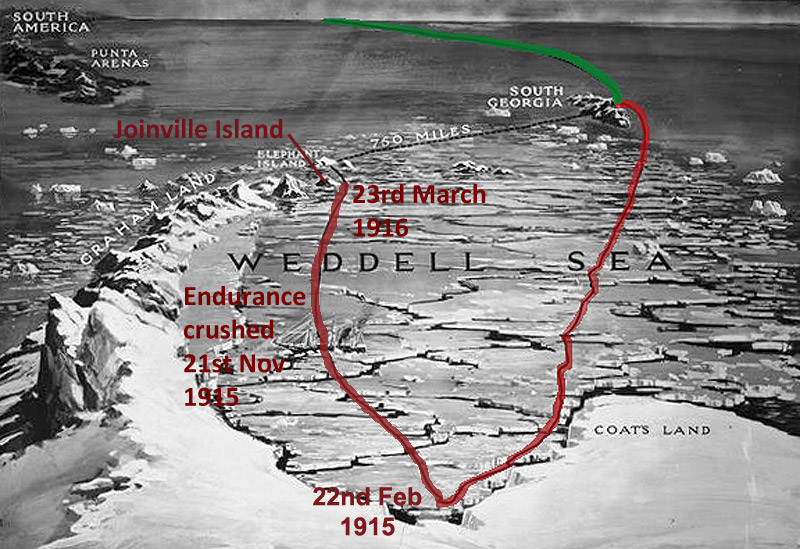
Mar 24 1916
Climbed a nearby berg to see the
land 30-40 miles away, ice too broken to march over, not open
enough for boats, we are drifting slowly past it.
Mar 25 1916
Winter is approaching, spend the
day in sleeping bags to keep warm, drinking water at supper
froze over in the tent before we could drink it.
Mar 27 1916
Rations cut by half today, enough
for health and constant hunger, there are about 500-600lbs of
dog pemmican at Ocean Camp if we can get it.
Mar 28 1916
17 penguins and a seal captured,
pack too dangerous to reach Ocean Camp for food, our new goal
is Elephant Island when we get open water.
Mar 30 1916
Roused by the watchman at 5am, our
floe had split in 2! An exciting hour moving stores and valuables
onto the same piece of ice to save them.
Mar 30 1916
Men were stranded and then got back
again, a gentle swell caused the cracking, we are now on a piece
of ice about 1/4 of the original.
Mar 30 1916
Shot a leopard seal 12 days+ of fuel
and meat, last of the dogs shot, drivers making sure they were
cooked to perfection, a mark of respect.
Mar 31 1916
42 penguins obtained. A group chasing
more were marooned by an opening lead in the ice, men and booty
rescued by paddling an ice floe "boat".
Apr 1 1916
2nd hand fish for breakfast from
the leopard seals stomach, a welcome change, a perilous night
when our floe cracked in half again, calm now.
Apr 4 1916
The ebb and flow of moods and conversation
depend on the direction of the wind and how much game we catch,
Elephant Island about 100 miles now.
Apr 5 1916
Drifting to a gap between Elephant
Island and King George Is. No land to make for to the north
if the pack takes us through, South Georgia 700 miles.
Apr 7 1916
Dawn, what seemed to be a huge berg
appeared, revealed as the peak of Clarence Island 60 miles away,
enlarged by mirage it seems just 10 miles.
Apr 7 1916
Rations increased, extra blubber
is appreciated on cold days, as is dog pemmican mixed with milk
powder and sugar for a perfect breakfast.
Apr 8 1916
Elephant Island in sight at dawn.
Our floe continues to split and reduce in size, a large swell
moving the pack can only mean open water is near.
Apr 8 1916
Ernest Shackleton -
I confess that I felt the burden
of responsibility sit heavily on my shoulders - I was stimulated
and cheered by the attitude of the men.
Next page: 4 - lifeboats to Elephant Island
Credits, sources and references
Diaries - the diaries of expedition members were as sources of information and quotes to inform this narrative of the expedition.
Ernest Shackleton - South! - at Project Gutenberg
Thomas Orde-Lees - see book links below
Frank Worsley - see book links below
Frank Hurley - link
Harry McNeish (Henry McNish) - link
Pictures - from a variety of sources particular credit to:
State Library of New South Wales - link
National Library of Australia - link
National Library of New Zealand - link
National Oceanic and Atmospheric Administration - link
Ernest Shackleton Books and Video

South - Ernest Shackleton and the Endurance Expedition (1919)
original footage - Video

Shackleton
dramatization
Kenneth Branagh (2002) - Video

Shackleton's Antarctic Adventure (2001)
IMAX dramatization - Video

The Endurance - Shackleton's Legendary Expedition (2000)
PBS NOVA, dramatization with original footage - Video
Endurance : Shackleton's Incredible Voyage
Alfred Lansing (Preface) - Book
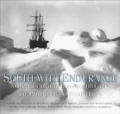
South with Endurance: Frank Hurley - official photographer
Book
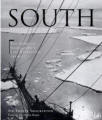
South! Ernest Shackleton Shackleton's own words
Book

Shackleton's Way: Leadership Lessons from the Great Antarctic Explorer
Book

